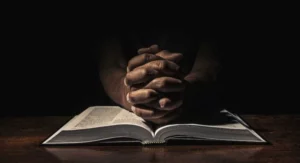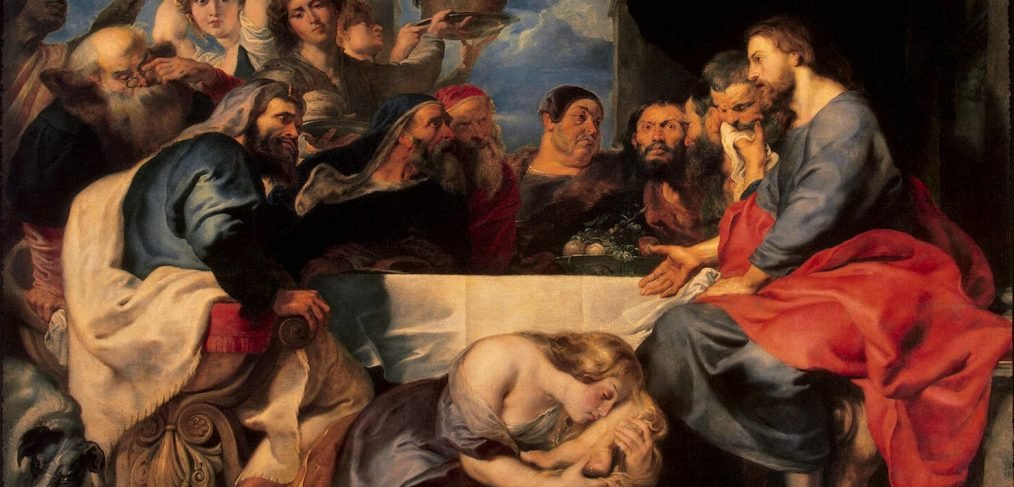what is the lord’s supper, here’s Bible Study on the Lord’s Supper
This Bible Study will give you an explanation about the meaning of the sacrament, which is to take it unworthily, and how we should take it
Institution of the sacrament by the Lord Jesus – Luke 22: 14-20
When it was time, he sat down at table, and the apostles with him. And he said to them: How I have longed to eat with you this Passover before I suffer! Because I tell you that I will not eat it any more, until it is fulfilled in the kingdom of God. And having taken the cup, he gave thanks, and said: Take this, and divide it among yourselves; because I tell you that I will not drink more of the fruit of the vine, until the kingdom of God comes. And he took bread and gave thanks, and broke it and gave it to them, saying, This is my body, which is given for you; Do this in remembrance of me. In the same way, after supper, he took the cup, saying: This cup is the new covenant in my blood, which is shed for you (Luke 22:14-20).

What is the Lord’s Supper?
The Lord’s Supper or also called the Lord’s Supper is one of the sacraments (along with baptism) that was instituted by the Lord Jesus Christ, who ordered it to be practiced until his coming ( Luke 22:19; 1 Cor 11:24 ). It is also known as “Communion” ( 1 Cor 10:16 ), “Eucharist” (Greek ending referring to “Thanksgiving” Math 26:26 ), or “Breaking of Bread” ( Acts 2:42 ).
The two elements in the Lord’s Supper are the “Bread” and the “Wine”, which represent the “Body” and the “Blood” of Christ. His body was broken when he bore our sins on the Cross ( 1 Peter 2:24 ), and the blood establishes a New Covenant, that is, the divine promise of Eternal Life.
The Lord Jesus Christ emphasized in the ordinance “do this in remembrance of me” ( Luke 22:19 ), to remember his sacrifice, which is the basis for the forgiveness of sins, and to wait on the promise of his second coming.

Biblical meaning of the Lord’s Supper or Lord’s Supper
The Lord’s Supper has a lot to do with Easter. The purpose of the Passover meal was explicitly commemorative. God tells the people of Israel how to respond when future generations ask what the food means: They will answer them: This sacrifice is the Passover of the Lord, which in Egypt passed by Israelite houses: He struck down the Egyptians, but he saved our families’ lives ” ( Exodus 12:27 NIV).
For this reason, it is not by chance that the institution of the “Lord’s Supper” coincided with Passover, as Jesus explicitly called it “the Passover meal” ( Math 26:18-19 ).
And he said: Go to the city to a certain man, and tell him: The Master says: My time is near; in your house I will celebrate the Passover with my disciples. And the disciples did as Jesus commanded, and prepared the Passover ( Matthew 26: 18-19 ).
The Lord Jesus links the meaning of food with its function as a proclamation. The bread represented his body broken for our sins and the wine represented his shed blood, with which he established a new covenant.
In short, the relationship that exists between the Passover meal and the sacrament was that Passover celebrated the liberation of the people of Israel from the slavery of Egypt and the meaning of the sacrament is to remind us of the liberation of our sins by the death of Christ.
ALSO READ:
- let not your heart be troubled nkjv Explanation
- With God, Nothing Is Impossible Explanation
- How To Have Victory In Christ Explanation
What is it to take the Lord’s Supper or Lord’s Supper Unworthily?
When we read the context of God’s word in “1 Corinthians 11: 17-32,” we note that the Apostle Paul condemns the way the Corinthian church celebrated the Lord’s Supper ( 1 Cor 11:17 ). Because it was supposed to be a celebration of communion between the brothers, it had turned into gluttony, excessive drinking, and division with one another. On the one hand, those who had a lot of money ate until they were satisfied, and on the other hand, the poor were left starving without eating anything ( 1 Cor 11:18-22 ).
The Apostle Paul explains to the Corinthians that the purpose of the Lord’s Supper is to do it for the Lord ( 1 Cor 11:23-25 ) and to maintain good communion and love for the brothers.
For this reason, we can understand that when there are selfish motives ahead, division, strife, or any hidden sin. The best thing is that we make peace with the brothers or else we turn away from sin and get right with God.
Therefore, let each one prove himself, and thus eat of the bread, and drink of the cup. For he who eats and drinks unworthily, without discerning the Lord’s body, eats and drinks judgment to himself ( 1 Corinthians 11:28-29 ).

Can you take the Lord’s Supper without being Baptized?
The Bible teaches us that the Lord Jesus on Easter night, who instituted the sacrament, invited only his disciples to take it ( Luke 22:14 ), and all of them had already been baptized.
On the other hand, many think that anyone can take the sacrament, arguing that Judas took it, they are wrong. For it is impossible that the Lord Jesus allowed that moment to be desecrated when this sacred institution was carried out in memory of his sufferings and death.
Judas Iscariot did not take the sacrament, only a morsel of bread dipped in bitter herb sauce that was part of the Jewish Passover meal ( Exodus 12:8 ). The Bible highlights for us in the Gospel of John 13:30 the moment when Judas leaves the place before this institution.
When he had taken the morsel, then he went out; and it was already night ( John 13:30 ).
CHECK OUT:
- 5 Ways to resist and overcome temptation
- 50 Effective Bible verses about God’s Mercy and Prayer
- The kind of prayer God answer
Final Words:
Finally, another biblical argument that emphasizes that it is important to be baptized before participating in the sacrament is found in the “Book of Acts”, when apostles carry out the command to preach the gospel and baptize new believers. But they also participate in “Communion and Breaking of Bread” with each other.
So, those who received his word were baptized; and there were added that day about three thousand people. And they continued steadfastly in the apostles’ doctrine, in fellowship with one another, in the breaking of bread, and in prayers. ( Acts 2:41-42 ).
